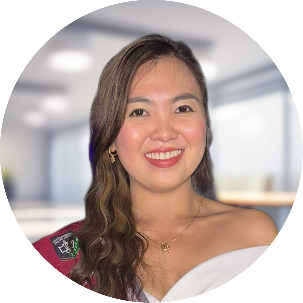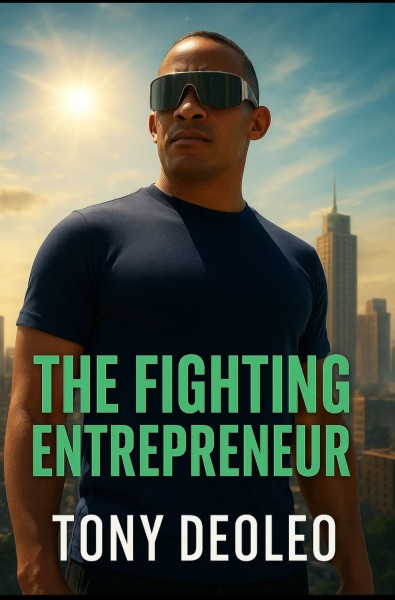Press Release
New Mexico Instructional Leader Publishes Study on ELA Assessment Equity Earns Recognition for Teaching Excellence
United States, 27th May 2025 — Jesselle Garbo-Acson, a dual-licensed Level III Instructional Leader and public-school educator in New Mexico, is receiving recognition for her published research on distance learning equity and her outstanding instructional achievements in underserved school communities. Her co-authored, peer-reviewed study—“Distance Learning Barriers and Bottlenecks: A Phenomenological Inquiry on the Conduct of English Language Arts (ELA) Standard Assessments”—was published in the International Journal of Learning, Teaching and Educational Research and is now informing conversations on educational equity and assessment reform across the United States.
Garbo-Acson, who currently teaches at Dzilth-Na-O-Dith-Hle Community School, is known for designing culturally responsive, high-growth classrooms that honor Indigenous perspectives while aligning with state academic standards. Her previous role at Crownpoint Elementary School saw her students achieve the highest schoolwide gains in English Language Arts and Math during the 2023–2024 New Mexico State Assessments. Her instructional impact was formally recognized with the Teacher of the Month (2022) and Staff Recognition (2023) awards.
Academic and Professional Credentials
Garbo-Acson holds a Master’s Degree in English Language Education, is a TESOL-certified educator, a Microsoft Certified Educator, and a National Board Certification candidate. She also holds dual Level III Instructional Leader licenses for both K–8 and 6–12 in New Mexico—the highest teaching licensure tier—demonstrating her broad capacity to lead, coach, and innovate across grade levels.
In her role as a certified District and State Test Administrator, she ensures high-stakes assessments are conducted with fidelity and in alignment with federal standards. She is also recognized as a Blended Learning Influencer, regularly integrating digital tools and differentiated strategies to promote equity in both in-person and online learning environments.
Groundbreaking Publication on Remote ELA Assessment
Her most recent scholarly article, co-authored with three Filipino educators, provides a field-based, research-backed examination of the challenges ELA teachers faced during remote assessment mandates prompted by the COVID-19 pandemic. The study identifies critical equity issues, including:
- Inconsistent access to digital infrastructure and student devices
- Lack of preparedness in administering standardized assessments virtually
- Emotional strain and academic disengagement during remote testing
- Barriers to valid data collection and assessment integrity
The research aligns closely with federal priorities under the Every Student Succeeds Act (ESSA) and underscores the need for revised assessment models that are flexible, culturally sensitive, and inclusive of underserved student populations—especially English learners and students in Title I schools.
“Assessment must be more than a compliance measure,” said Garbo-Acson. “It must be a fair and accurate reflection of a student’s learning context and capacity—not just their access to internet or devices.”
Read the publication: https://doi.org/10.26803/ijlter.22.8.3
Instructional Leadership and Awards
Jesselle Garbo-Acson’s classroom results consistently reflect her innovative, data-driven approach to inclusive instruction. Highlights include:
- 33-point growth in math performance on the NWEA during SY 2024–2025
- Class-wide proficiency averages in the 71st percentile nationally
- Leadership in organizing schoolwide spelling bees, book reveals, and parent-teacher initiatives
- Tech-enhanced instruction using iPads and Microsoft tools in both U.S. and Philippine classrooms
Her work represents a model for transformative instructional leadership—blending culturally grounded pedagogy, digital fluency, and systemic insight to meet the diverse needs of today’s learners.

For Interviews, Speaking Engagements, or District Collaborations
Jesselle Garbo-Acson is available for:
- Panel discussions on equity in assessment and distance learning
- Guest articles or blog features for education journals and platforms
- Professional development sessions on culturally responsive instruction and assessment design
To schedule an interview or request speaking engagement materials, please contact:
Jose T. Dizon
(952) 222 4068
InnovatorsProfessionals
Email:info@innovatorsprofessionals.com
www.innovatorsprofessionals.com
Media Contact
Organization: Innovators & Professionals
Contact Person: Jose Dizon
Website: http://www.innovatorsprofessionals.com/
Email: Send Email
Country:United States
Release id:28374
View source version on King Newswire:
New Mexico Instructional Leader Publishes Study on ELA Assessment Equity Earns Recognition for Teaching Excellence
This content is provided by a third-party source.. King Newswire makes no warranties or representations in connection with it. King Newswire is a press release distribution agency and does not endorse or verify the claims made in this release.
About Author
Disclaimer: The views, suggestions, and opinions expressed here are the sole responsibility of the experts. No Digi Observer journalist was involved in the writing and production of this article.
Press Release
Sunhome Brings One-Stop Solar Energy Solutions to UK Households
Sunhome, a leading global solar solution provider of integrated home solar and storage systems, took a significant step to elevate its profile in the British market with a successful exhibition at Solar & Storage Live in Birmingham, happening from 23rd September to 25th September.
BIRMINGHAM, England, 10th Oct. Sunhome, a leading global solar solution provider of integrated home solar and storage systems, took a significant step to elevate its profile in the British market with a successful exhibition at Solar & Storage Live in Birmingham, happening from 23rd September to 25th September.
This event served as a platform to unveil Sunhome’s full suite of residential solar solutions designed for UK households, highlighting the company’s game-changing one-stop-shop strategy.
In the UK, many homeowners face fragmented energy solutions — systems built from components supplied by different manufacturers often result in inconsistent quality, complicated installation, and unclear after-sales responsibilities. Sunhome’s newly introduced one-stop residential solar solution directly addresses these challenges. This integrated system combines high-efficiency solar panels, inverters (3kW–6kW), and batteries (5kWh–20kWh), along with heating integration. By offering a fully unified system from a single brand, Sunhome redefines the residential solar experience—ensuring reliability, simplified installation, and seamless after-sales support for every household.
Placing safety at the forefront, the Sunhome Smart Energy System is equipped with 24-hour monitoring of key electrical parameters, including leakage and overload protection. Its three-level defense system—early warning, threshold alerts, and protective shutdown—provides comprehensive real-time protection. Furthermore, the system’s precise arc detection and ultra-fast disconnection capabilities exceed industry safety standards, establishing a new benchmark for home energy protection.
Beyond the product showcase, a key highlight was the demonstration of Sunhome’s proprietary AI-powered modelling software, iSolarRoof, which leverages Google Maps to perform remote roof assessments and generate customized system designs. This innovation reinforces Sunhome’s commitment to technology-driven solutions and positions the company as a leader in delivering accurate, transparent, and tailored energy plans for homeowners.
Looking ahead, Sunhome also showcased its balcony photovoltaic storage system—a forward-thinking solution designed to serve the flat-dwelling market once UK regulations permit. This move highlights the company’s proactive approach and vision as an industry innovator.
About Sunhome
Founded in 2013, Sunhome has established itself as a leading global technology brand dedicated to transforming residential energy. Through over a decade of innovation and its proprietary full-stack technology, Sunhome is committed to delivering integrated solutions that make a seamless, intelligent, and sustainable energy future accessible to families worldwide.

Media Contact
Organization: UK RUSH PRODUCTIONS
Contact Person: Claire
Website: https://www.ukrushproductions.com/
Email: Send Email
Contact Number: +447498387712
Address:Suite 2a Blackthorn House, St. Pauls Square
Address 2: Birmingham, United Kingdom, B3 1RL
City: Birmingham
Country:United Kingdom
Release id:35225
The post Sunhome Brings One-Stop Solar Energy Solutions to UK Households appeared first on King Newswire. This content is provided by a third-party source.. King Newswire makes no warranties or representations in connection with it. King Newswire is a press release distribution agency and does not endorse or verify the claims made in this release. If you have any complaints or copyright concerns related to this article, please contact the company listed in the ‘Media Contact’ section
About Author
Disclaimer: The views, suggestions, and opinions expressed here are the sole responsibility of the experts. No Digi Observer journalist was involved in the writing and production of this article.
Press Release
James Jara New Book Empowers CTOs and HR Leaders to Build High-Performing Remote Teams Across Latin America
Technology strategist James Jara’s new book, Nearshoring Staff Augmentation in Latin America, reveals how companies can tap into Latin America’s skilled tech talent to build scalable remote teams, reduce costs, and drive innovation through trust-based partnerships across Mexico, Colombia, Brazil, Argentina, and Costa Rica.
James Jara’s new book, Nearshoring Staff Augmentation in Latin America
As global businesses search for new ways to scale efficiently and attract top-tier talent, James Jara’s new book, Nearshoring Staff Augmentation in Latin America, arrives as a timely roadmap for technology executives, HR leaders, and founders rethinking their global strategy.
The book explores how the rapid digital transformation of Latin America has positioned the region as one of the world’s most strategic talent hubs. Through real-world experience and data-driven analysis, Jara outlines how companies can reduce costs, expand capacity, and maintain product quality through nearshoring — without sacrificing cultural alignment or operational control.
Drawing from more than a decade leading software ventures across LATAM, Jara details how nearshoring staff augmentation works in practice — from evaluating partner countries like Mexico, Colombia, Argentina, Brazil, and Costa Rica, to establishing effective cross-border workflows. He explains how organizations can blend agility with structure, mitigate timezone challenges, and create distributed teams that perform at Silicon Valley standards.
“We’re witnessing a massive shift in how and where innovation happens,” says James Jara. “Latin America has the skills, energy, and proximity to become the natural extension of the world’s top tech companies. This book gives leaders the playbook to make that transformation a reality.”
Beyond the technical frameworks, Nearshoring Staff Augmentation in Latin America explores the human side of collaboration — emphasizing trust, cultural synergy, and long-term sustainability over short-term outsourcing tactics. Jara encourages executives to see nearshoring not just as a cost-saving model, but as an opportunity to unlock innovation through relationships built on shared values and vision.
The book positions Latin America as a vital player in the future of global technology, driven by a new generation of bilingual engineers, designers, and innovators ready to operate at global scale.
Nearshoring Staff Augmentation in Latin America: Unlocking Market Opportunities for Businesses and Startups is available worldwide in paperback and ebook formats. Readers can learn more at James Jara Nearshoring Staff Augmentation in Latin America or purchase it directly on Amazon Nearshoring Staff Augmentation in Latin America Book.
About the Author
James Jara is a technology entrepreneur and nearshoring strategist with over 15 years of experience building distributed software teams across Latin America. He is the founder of multiple ventures in tech, staffing, and AI, and is known for helping global companies scale efficiently by leveraging top-tier LATAM talent.
Media Contact
Organization: James Jara
Contact Person: James Jara
Website: https://jamesjara.com
Email:
contact@jamesjara.com
Country:United States
Release id:35256
The post James Jara New Book Empowers CTOs and HR Leaders to Build High-Performing Remote Teams Across Latin America appeared first on King Newswire. This content is provided by a third-party source.. King Newswire makes no warranties or representations in connection with it. King Newswire is a press release distribution agency and does not endorse or verify the claims made in this release. If you have any complaints or copyright concerns related to this article, please contact the company listed in the ‘Media Contact’ section
About Author
Disclaimer: The views, suggestions, and opinions expressed here are the sole responsibility of the experts. No Digi Observer journalist was involved in the writing and production of this article.
Press Release
Dream California Getaway Names Bestselling Author & Fighting Entrepreneur Tony Deoleo Official Spokesperson Unveils Menifee Luxury Retreat

Menifee, California — October 2025 — Dream California Getaway Vacation Homes & Luxury Corporate Rentals, an international luxury lifestyle brand with operations across the United States, the Caribbean, and Asia, proudly announces Tony Deoleo, bestselling author and globally recognized as “The Fighting Entrepreneur,” as its official spokesperson.
This powerful partnership coincides with the unveiling of Dream California Getaway’s newest luxury retreat — a breathtaking architectural masterpiece nestled in the scenic hills of Menifee, California. Blending modern California elegance with resort-style serenity, the three-bedroom, two-bathroom residence delivers a private escape designed to inspire, rejuvenate, and captivate.
“This Menifee retreat isn’t just a property — it’s a statement,” said Tony Deoleo. “Every detail reflects the spirit of Dream California Getaway: bold, elegant, and internationally connected. It’s about living beautifully, dreaming bigger, and redefining what luxury truly means.”
The Menifee Luxury Retreat welcomes guests into a world of refined sophistication, featuring custom finishes, designer furnishings, and a seamless connection between indoor comfort and outdoor tranquility. From golden sunset evenings beneath the California sky, every moment embodies the Dream California Getaway promise — luxury with soul.

Explore the Menifee Retreat:
Airbnb Listing: https://www.airbnb.com/rooms/974707914516603346
Zillow Listing: https://www.zillow.com/homedetails/Menifee-CA-92584/95975822_zpid/
Teaser Trailer: https://youtube.com/shorts/s3y971OnvXE
With growing operations spanning California, the Caribbean, and Asia, Dream California Getaway Vacation Homes & Luxury Corporate Rentals continues to set a global standard for upscale travel and executive living. Each residence is meticulously curated to deliver comfort, class, and connection — whether for a film production stay, an executive relocation, or a month-long escape in paradise.
About Tony Deoleo
Tony Deoleo, bestselling author and famously known as “The Fighting Entrepreneur,” is an international business strategist and motivational leader celebrated for his relentless energy, bold vision, and global influence. His appointment as spokesperson for Dream California Getaway unites two powerhouses of inspiration — one redefining success, the other redefining luxury.
About Dream California Getaway Vacation Homes & Luxury Corporate Rentals
Dream California Getaway is a premier international luxury brand specializing in high-end vacation homes and executive corporate rentals. With active operations throughout the USA, Caribbean, and Asia, the company is committed to delivering world-class hospitality through modern design, personalized comfort, and unforgettable experiences. Whether for business, film, or leisure, Dream California Getaway transforms every stay into a world of elegance and inspiration.
Media Contact
Dream California Getaway Vacation Homes & Luxury Corporate Rentals
Email: tdeoleo@deoleodigitalpublishing.com
Phone: (818) 850-1165
Dream California Getaway Vacation Homes and Luxury Corporate Rentals
Media Contact
Organization: Deoleo Public Relations Firm
Contact Person: Tony Deoleo
Website: https://deoleopublicrelationsfirm.godaddysites.com/?sfnsn=mo
Email:
tdeoleo@deoleodigitalpublishing.com
Contact Number: +18184581974
Address:506 S. spring st
City: Los Angeles
State: CA
Country:United States
Release id:35232
The post Dream California Getaway Names Bestselling Author & Fighting Entrepreneur Tony Deoleo Official Spokesperson Unveils Menifee Luxury Retreat appeared first on King Newswire. This content is provided by a third-party source.. King Newswire makes no warranties or representations in connection with it. King Newswire is a press release distribution agency and does not endorse or verify the claims made in this release. If you have any complaints or copyright concerns related to this article, please contact the company listed in the ‘Media Contact’ section
About Author
Disclaimer: The views, suggestions, and opinions expressed here are the sole responsibility of the experts. No Digi Observer journalist was involved in the writing and production of this article.
-
Press Release4 days ago
DLMSPV LLC and Michael Hartnett Helping Global Investors Identify Quality Assets through DSLAI and DLMSPVAI Frameworks
-
Press Release6 days ago
No Compromise on Quality or Design: Lonsdale Metals Glazing Bars Bring Tradition Innovation and Versatility to Modern Architecture
-
Press Release5 days ago
Nathan Smith Cayman and Rockwater Capital Announce Anticipated Completion of Point West Development
-
Press Release3 days ago
TrustStrategy Announces Launch of New AI Trading App Joining the List of the Best Trading Apps in 2025
-
Press Release4 days ago
Open Dialogue Experts at NC ‘Russia’ Discuss Success Formula in the Economy of the Future
-
Press Release3 days ago
Geopolitics and Metallurgy put Copper Giant Massive Molybdenum Resource in Sharper Focus
-
Press Release5 days ago
Dolly Varden Silver Confirms High-grade Gold System at Homestake Ridge
-
Press Release5 days ago
Matt Egyhazy on AI: The Future of Banking is Hyper-Personalized, Not Just Automated



